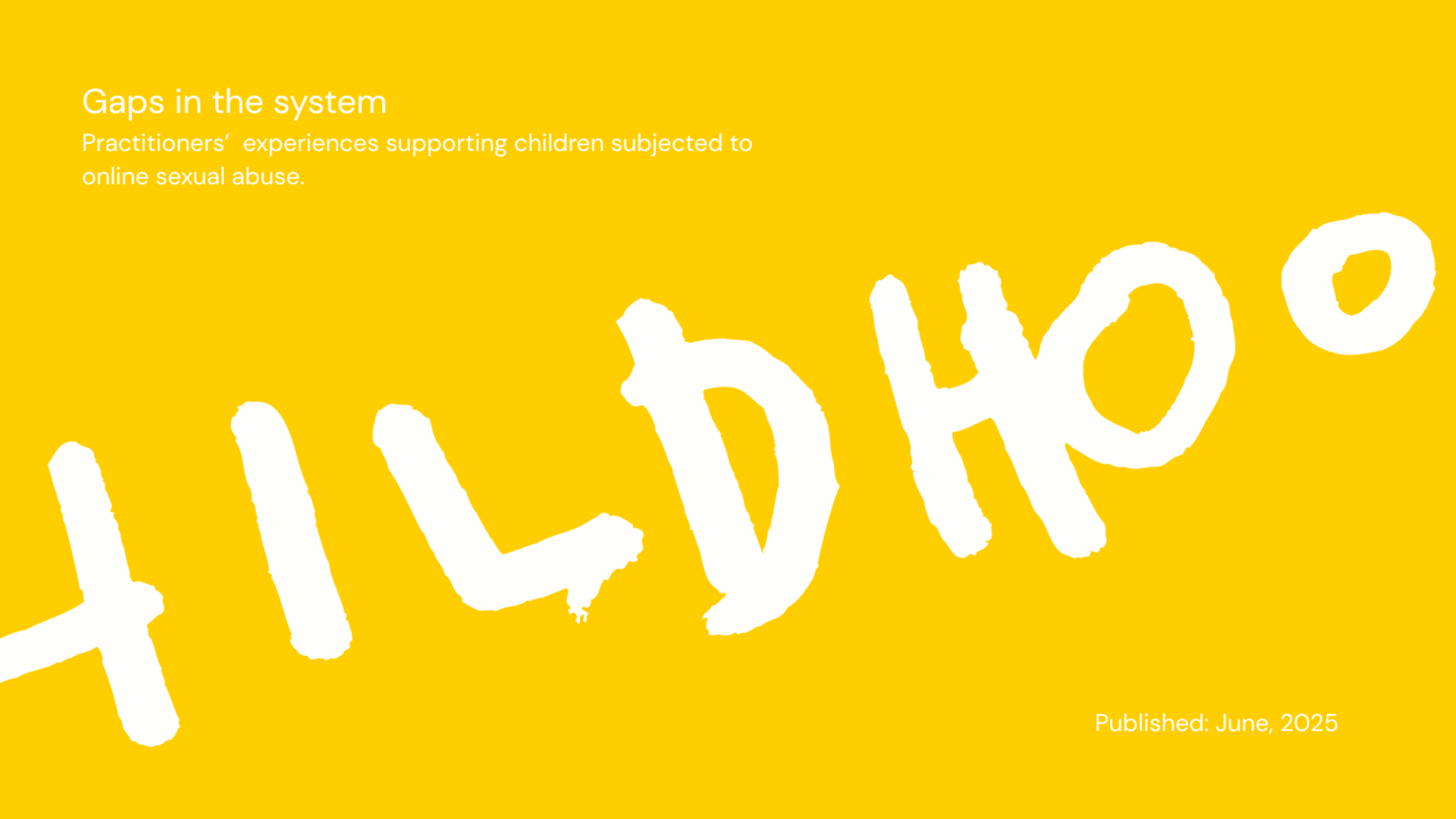Sexual abuse is sexual abuse – no matter where it happens. But children who are exposed online do not receive the same care, support, and right to redress as others. In a new report, we show how the serious consequences of online sexual abuse are downplayed – and that not all children benefit from society’s protection.
The consequences can be just as severe or worse.
Globally, one in five girls and one in seven boys are subjected to sexual abuse during their upbringing – and the proportion of internet-related abuse is increasing significantly. Despite this, the report Gaps in the System: Practioners’ Experiences of Supporting Children Subjected to Online Sexual Abuse shows that children exposed to online sexual abuse are still treated as if their experiences are something “different.” Something lesser, less real, less serious – and less urgent to act upon. But for the children, the reality is different. The trauma and consequences are often just as profound – sometimes worse – than for children exposed to physical abuse. Despite this, they do not receive the same support, care, or right to redress. The report highlights a troubling inequality in how the child protection system responds to children subjected to sexual abuse.
The report specifically identifies three shortcomings in the system:
- Lack of cooperation between the police, social services, and child and adolescent psychiatry means that children abused online often fall between the cracks – and thus do not receive support via Barnahus.
- The police bear an unreasonable responsibility for the child’s social support in connection with interviews, due to the absence of clear structures and coordinated functions.
- Unequal and insufficient support for children, even though knowledge and proven methods exist.
A safety net with holes.
“The technological development is moving at breakneck speed. It has opened new ways to discover the world, explore oneself, and build relationships. But this technological leap has also brought risks – and it is painfully clear that we as a society have not yet adapted. The report reveals a blind spot in the system: sexual abuse of children online is not captured by society’s safety net.”
– Paula Guillet de Monthoux, Secretary General, World Childhood Foundation
The report is based on professionals’ experiences of supporting children who have been subjected to online sexual abuse. It describes what is typical for such abuse – and what needs to change so that these children no longer remain outside society’s support. Among other things, the authors note that internet-related sexual abuse often follows a specific pattern. Several children described how the contact initially felt positive but gradually changed into something they no longer wanted to be part of. Many report being threatened into doing things against their will. Threats appear to be particularly characteristic in abuse that occurs online.
A particularly vulnerable context
There are often pictures, videos, or chats documenting what happened – material that can serve both as evidence and increase the pressure on the child to talk during interviews or conversations, even when not ready. This can prevent children from being given space to talk about the abuse at their own pace. The fact that others may have seen or read what happened often reinforces the sense of shame. Shame, guilt, and fear are recurring themes. Children exposed online often carry a particularly heavy sense of guilt as they frequently feel they were complicit. At the same time, many parents also feel guilty for not realizing what was happening. The fact that abuse can occur at home, sometimes in the presence of others, creates a sense of powerlessness. Parents’ reactions also risk further burdening the child with guilt.
What needs to be done?
Children exposed online do not need new structures – they need to be included in the ones we already have. With this report, Childhood wants to remind society of a self-evident principle: every child who is subjected to sexual abuse – no matter where it happens – has the right to protection, support, and redress.
About the report
The report is authored by Linda Jonsson and Anette Birgersson at the Department of Social Work, Marie Cederschiöld University, commissioned by the World Childhood Foundation. It was developed within the framework of Childhood’s AI initiative Stella Polaris, funded by the Swedish Postcode Lottery.
Read the full report here.




